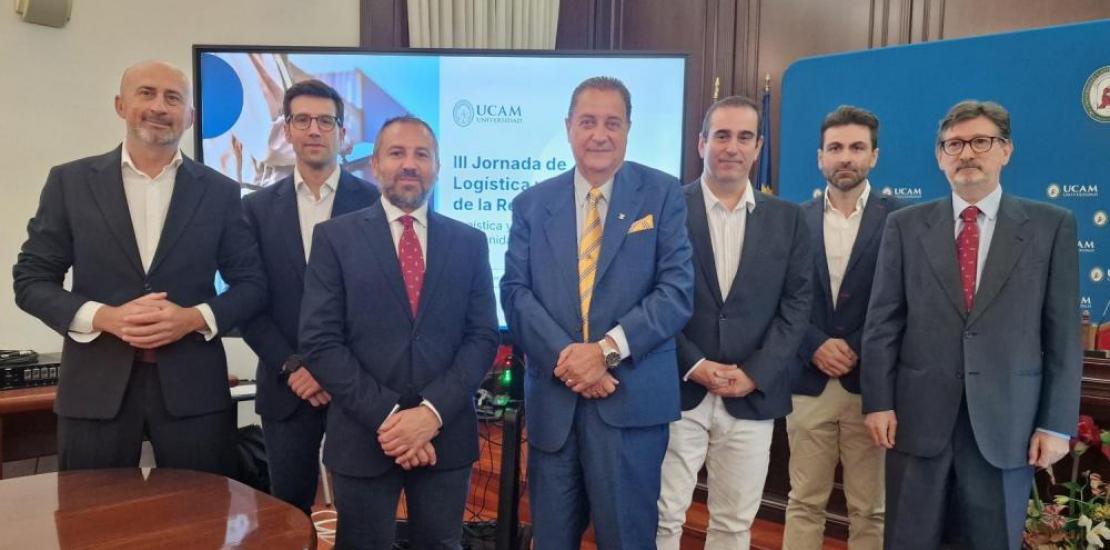The transport and logistics industry generates 5,7% of the employment in the Region of Murcia and 4% of its GDP
This information was shared this morning at the Third Conference on Logistics and Business in the Region of Murcia organised by UCAM, a university that is planning to offer a degree in logistics, given that it is a strategic industry for the region.
‘Logistics and business: future opportunities’ was the motto of the conference held at the Los Jerónimos Campus. Executives from leading companies, political leaders and UCAM academics discussed the major challenges facing the transport and logistics industry in the Region of Murcia.
Talks and round tables were held, such as the one entitled ‘New challenges and issues in logistics and last mile transport’, hosted by Roberto Liñán, director of the Chair of Mobility and Sustainable Transport of Metropolitan Murcia, which discussed how to improve logistic processes for the benefit of society. Good practices, environmental policies and corporate social responsibility in business logistics were also discussed, where representatives from companies such as Estrella Levante, Andamur, Mercamurcia, CC Nueva Condomina and Soltec shared their sustainability and social commitment initiatives.
At the opening of the conference, it was announced that work is underway to develop a degree in logistics, which will belong to the Higher Polytechnic School. Pedro de los Santos Jiménez, UCAM vice-dean of the Bachelor's Degree in Civil Engineering, stressed that ‘this degree responds to the growing importance of the logistics industry in the regional economic fabric.’
José Antonio Verdú, General Director of Mobility and Transport of the Region of Murcia, stressed that ‘logistics has turned into a strategic pillar of the economy of the Region of Murcia’, an industry that generates 5,7% of employment and represents 4% of the region’s GDP. Moreover, Verdú recalled that the regional government had invested 16 million euros in aid to improve energetic efficiency and reduction of emissions in transport, highlighting the job opportunities that will arise for young people trained in this field.
During the Conference, held in the Chapter House, the resilience shown by the sector in exceptional situations, such as yesterday’s power blackout, was mentioned. Verdú explained that ‘the region responded well to the blackout, with intercity transport operating without any major incidents’ thanks to a rapid coordination between administrations.
Lessons learned from the blackout: the importance of being prepared
The event also included interventions by leading representatives of logistics companies, who shared their experiences and lessons learned from the blackout.
Juan Sánchez, General Director of the Disfrimur Group, said that ‘thanks to having alternative premises we were able to continue with our operations, although some customers did experience losses, especially in the cold chain.’ He insisted on the need for contingency plans to minimise the impact of unforeseen events.
Miguel Ángel Hérchiga, director of Technologies and Innovation Projects of Grupo Caliche, stressed that ‘advance planning, including power generation systems and various connectivity routes, allowed us to continue operating until 6pm.’ However, he insisted that ‘it is essential to invest in resilience from the outset of logistics projects to cope with extreme situations.’
For his part, Nacho Satorre, Operations Director of Grupo Hefame, stressed that, although its infrastructure withstood the power outage, ‘unlike others, our operations did not resume in a normal fashion, as many pharmaceutical establishments were unable to function normally.’ He highlighted the importance of resilience plans to ensure the continuity of essential services.




